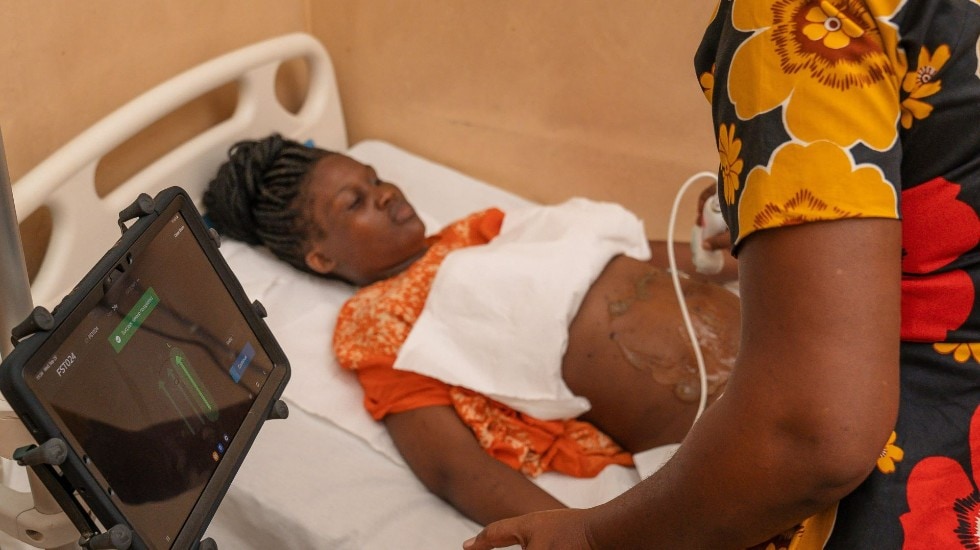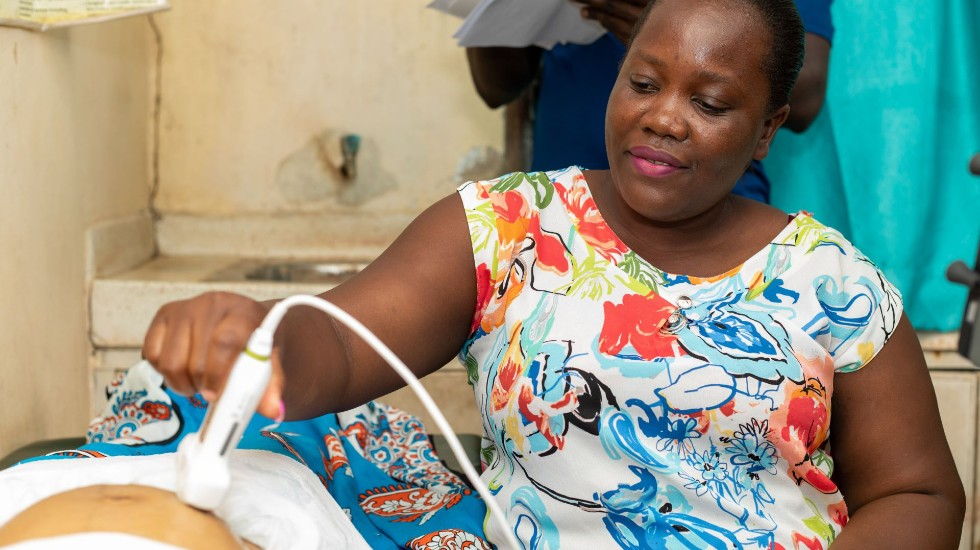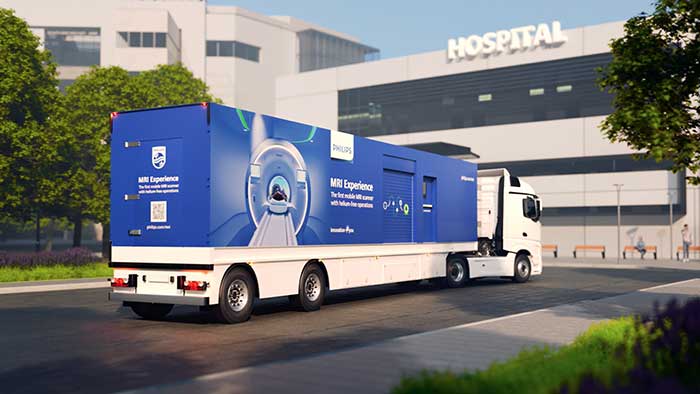How AI-enabled ultrasound helps increase access to maternal care
Sep 24, 2025 | 4 minute read
Women in rural areas generally have less access to healthcare during pregnancy, leading to potentially poor health outcomes for them or their newborns. Through a partnership with the Gates Foundation and research centers across the globe, Philips is developing and piloting AI-enabled monitoring solutions to improve healthcare delivery for underserved areas.

In rural areas, the health and well-being of women and newborns is at risk due to long distances to clinics, limited access to medical equipment for pregnancy monitoring, and a shortage of trained midwives, doctors and nurses. Approximately 92% of all maternal deaths occurred in low- and lower middle-income countries in 2023 , with Sub-Saharan Africa accounting for around 87% of these [1]. Most of these deaths could have been prevented with access to skilled healthcare professionals.
In line with the World Health Organization’s goal of improving maternal health, Philips is collaborating with the Gates Foundation and research centers across the globe to improve access to quality pregnancy care in rural areas through the latest health technology and training, helping to reduce premature and preventable maternal and infant deaths. The approach is grounded in Philips’ longstanding commitment to protect and uphold human rights, part of Philips’ strategy to doing business with sustainable impact. We are turning our high-level human rights ambitions into tangible programs together with colleagues, suppliers and partners around the world.
A USD 60 million investment from the Gates Foundation has been helping to accelerate the expansion of an AI-enabled obstetric application on the Philips Lumify Handheld Ultrasound device. AI can support frontline healthcare professionals in detecting key antenatal parameters to identify higher-risk pregnancies and recommend the right care pathway.
Once available, the Philips-developed solution will support midwives and nurses in acquiring maternal and fetal information through algorithms in the Lumify handheld ultrasound. The current prototype identifies key parameters, such as gestational age and amniotic fluid pocket size, to assess the health of both mother and baby.
The software and AI make the tools easier and faster to use, providing critical information. And the portable device can be plugged into a tablet, paving the way for greater access to care. The customizable software can meet specific regional requirements, amplifying its equitability and sustainability, and offering the potential to drive impact globally.

Over the past year, a pilot project in Kenya has shown positive results, with the technology aiding better-informed decision-making for pregnant women in rural, underserved communities.
Public-private partnerships are the essential ecosystem ‘glue’ to develop and implement sustainable solutions.
Public-private partnerships, like the collaboration with the Gates Foundation, are crucial for driving sustainable innovation and impact in healthcare. Private sector partners bring expertise in product development, supply chains, and scalable delivery models, while public sector partners provide (on-the-ground) infrastructure, regulatory frameworks, and access to communities in need. Success depends on aligning incentives, overcoming challenges together, and developing models that work across both low- and high-income countries. This shared commitment enables lasting, high-impact solutions.
“Public-private partnerships are the essential ecosystem ‘glue’ to develop and implement sustainable solutions,” said Ari Moskowitz, Deputy Director of Medical Devices & AI at the Gates Foundation. “Working together with stakeholders to change policy and guidelines is crucial to overcome issues in the healthcare ecosystem and unlock access to high-quality maternal care in an affordable way.”
The focus now is on ensuring access to the technology for nurses and midwives across other countries in Africa and beyond. Understanding their needs and challenges helps us to refine and develop the product, making it more accurate and user-friendly.
This innovation enhances health outcomes, improves healthcare delivery, creates economic opportunities, and boosts the professional experience for those working in healthcare systems. Expanding skillsets and career opportunities empowers local midwives and nurse practitioners to build a better future for their communities.
Learn more about Philips' commitment to doing business with sustainable impact and upholding human rights here.








